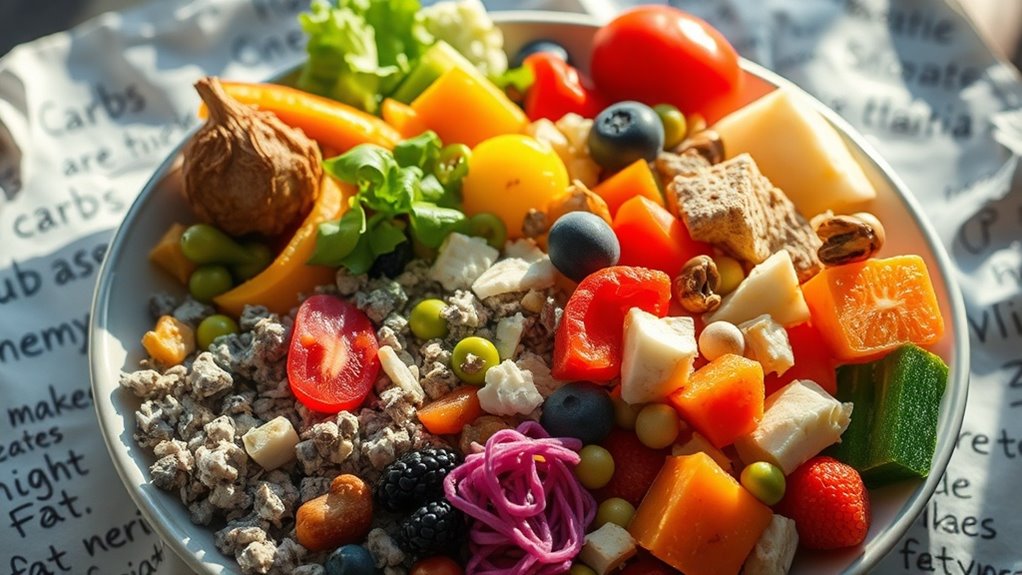Nutrition Myths That Could Be Holding You Back
You might be surprised to learn that not all calories are created equal. It’s easy to focus solely on calorie counts, but that can lead you astray in your health journey. Misunderstandings about macronutrients like carbs, fats, and proteins can skew your approach to nutrition. Are you ready to reevaluate what you think you know about your diet? Understanding these common myths could be the key to unlocking your true potential for better health.
Debunking the Calorie Myth
Have you ever wondered why counting calories seems to be a universal weight loss strategy, yet many people struggle to see results? This could be tied to prevalent nutrition myths.
Not all calories are created equal; the quality of food matters. Stress and metabolism affect how calories impact your body.
Focusing solely on numbers can undermine your long-term health and wellness goals.
The Truth About Carbs
Though many diets label carbohydrates as the enemy of weight loss, the reality is far more nuanced.
Carbs are your body’s main energy source. Choosing whole grains, fruits, and vegetables can provide essential nutrients and fiber.
It’s not about eliminating carbs but rather selecting the right ones. Moderation and balance can help you maintain energy levels and support overall health.
Fats: Friends or Foes?
When considering your diet, fats often evoke confusion, as they’re frequently labeled as detrimental to health.
However, not all fats are created equal. Healthy fats, like those found in avocados, nuts, and olive oil, support brain function and heart health.
Incorporating these fats into your meals can enhance satiety and nutrient absorption, making them essential allies in a balanced diet.
The Misconception of Detox Diets
Although the idea of detox diets sounds appealing, they often mislead people about how our bodies naturally eliminate toxins.
Your liver and kidneys efficiently filter and remove waste without needing extreme dietary changes.
Instead of jumping into fad detoxes, focus on a balanced diet rich in whole foods, stay hydrated, and prioritize regular exercise to support your body’s natural detoxification processes.
Protein: More Isn’t Always Better
How much protein do you really need for optimal health? Most adults require about 46-56 grams daily, depending on factors like age and activity level.
Consuming excessive amounts doesn’t necessarily boost muscle growth or improve health. Instead, focus on balanced meals that include a variety of nutrients.
Quality matters more than quantity, so prioritize whole food sources for your protein intake.


